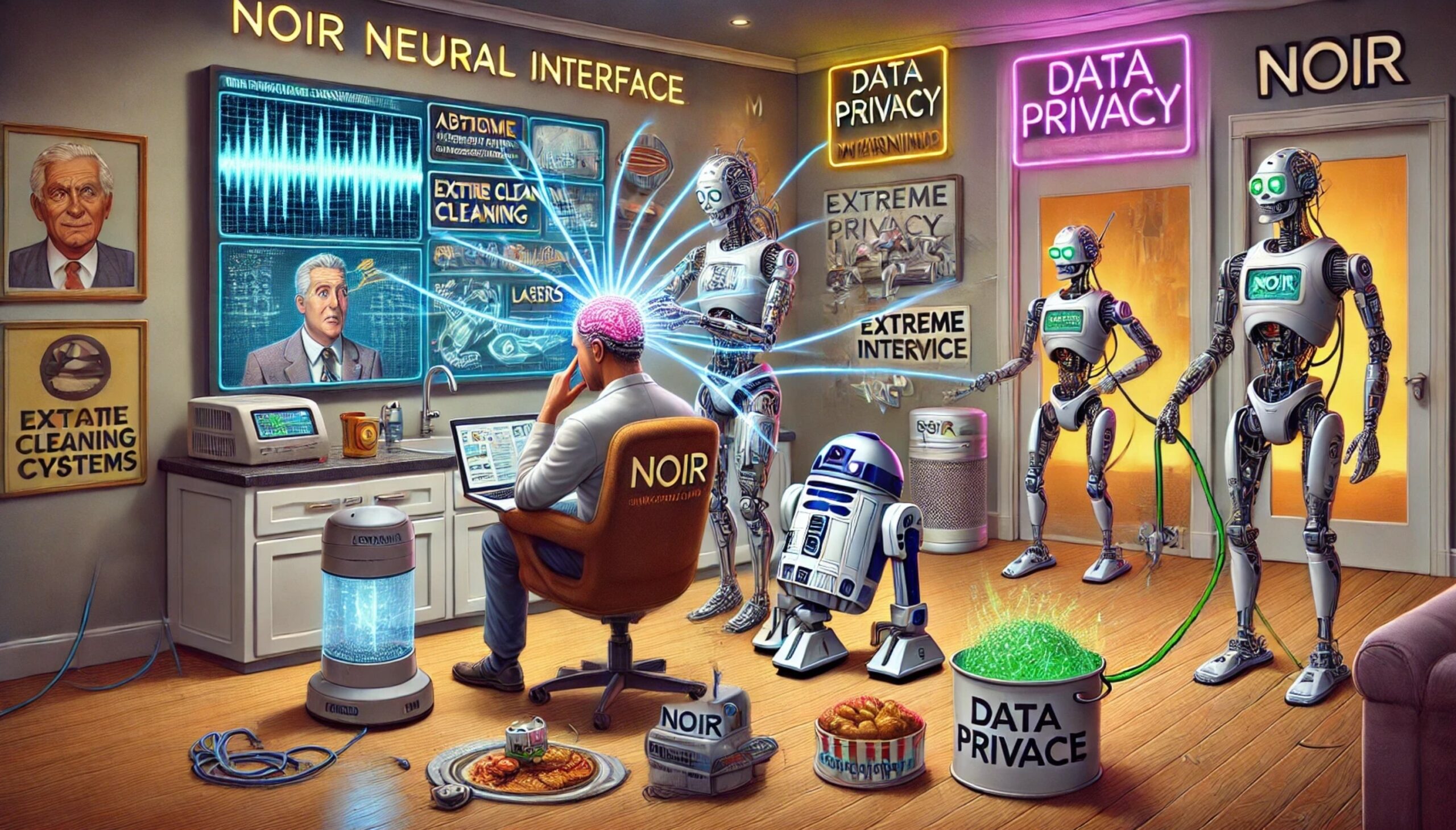NOIR

In literature and cinema, 'noir' is a genre that initially developed in detective novels of the 1920s and 1930s and found its full expression in films of the 1940s and 1950s. Film noir is characterized by complex plots, morally ambiguous characters, a cynical atmosphere, and a visual aesthetic that uses contrasts of light and shadow to create tension. These films often explore themes like fatalism, deception, and the trap of seduction.
The NOIR system (Neural Signal Operated Intelligent Robots) is a cutting-edge platform that enables the control of robots for daily household tasks through the interpretation of EEG brain signals. This is what I understand from the website and the paper (which I have not thoroughly analyzed).
In an extremely, truly extreme summary, this intelligent brain-robot interface system combines robotic learning algorithms to adapt to users and predict their intentions, improving human-machine interaction through direct neural communication. With a combination of 14 parameterized robotic skills, users can guide the robots to complete complex tasks with fewer attempts and reduced decoding time. Tests conducted and documented demonstrated the effectiveness of NOIR with tasks ranging from meal preparation to cleaning and personal care.
Experiments with the NOIR system involved three human participants performing 20 complex daily tasks using a combination of 14 parameterized robotic abilities. These activities included meal preparation, cleaning, personal care, and leisure. The tasks performed by the robots ranged from cleaning dirt to cooking pasta, with completion times and success rates varying, significantly improving with robotic learning.
If I try to imagine the near future (and with the rapid pace of technological development, this becomes increasingly difficult), I think the developments of a project like NOIR could focus on optimizing the brain-robot interface to further reduce the time and effort required to decode human intentions, expanding the range of tasks robots can perform.
Putting aside, for a moment, all issues related to neural data privacy, it is important to focus on three aspects: the first is technological accessibility; the second, the potential job losses due to automation. The third aspect, which I consider most relevant, is how these systems could impact individuals' quality of life and autonomy, especially those with physical limitations, ensuring that the benefits of automation are distributed equitably in society.
The integration of brain-robot interfaces like NOIR raises important questions about the nature of human action and autonomy, the boundary between mind and machine, and the moral responsibility of automated decisions. BRI technology can extend human capabilities and challenge our understanding of “normalcy” and disability.
These reflections compel us to carefully consider how technologies influence our identity and society, requiring continuous dialogue across the scientific and sociological communities, without excluding stakeholders, to fully understand the moral implications and possibilities these technologies offer.
I conclude by emphasizing how brain-robot interfaces challenge our traditional ideas of consciousness and subjective experience. The notion of extending human cognition through external devices (think of Otto’s notebook, Slide 23 https://nexa.polito.it/nexacenterfiles/polito-nexa_2022.pdf) is absolutely intriguing, raising questions about the nature of qualitative experience when interacting with the world through a robot. We could also explore the idea of the “extended mind,” suggesting that such technologies might literally expand the boundary of the mind beyond the biological brain. Finally, ethical questions could arise regarding personal identity and moral agency in contexts where actions are mediated by a brain-machine interface.
Consciousness is often associated with subjective experience and the ability to perceive and interact with the world. If robots become an extension of our cognitive and physical faculties, this could alter the way we experience consciousness, expanding our sense of identity and perceptual abilities. Moreover, prolonged use of such interfaces could influence brain structure and function, as the brain adapts and restructures itself in response to interactions with environments and tools it uses.
And what if disparities in access to these technologies widen the gap between the “enhanced” and the “natural”? Dependence on machines might also reduce human autonomy. Furthermore, if integrating such technologies becomes a requirement for productivity, we may be forced to undergo invasive modifications to remain competitive, reducing humanity to a mere extension of machines.